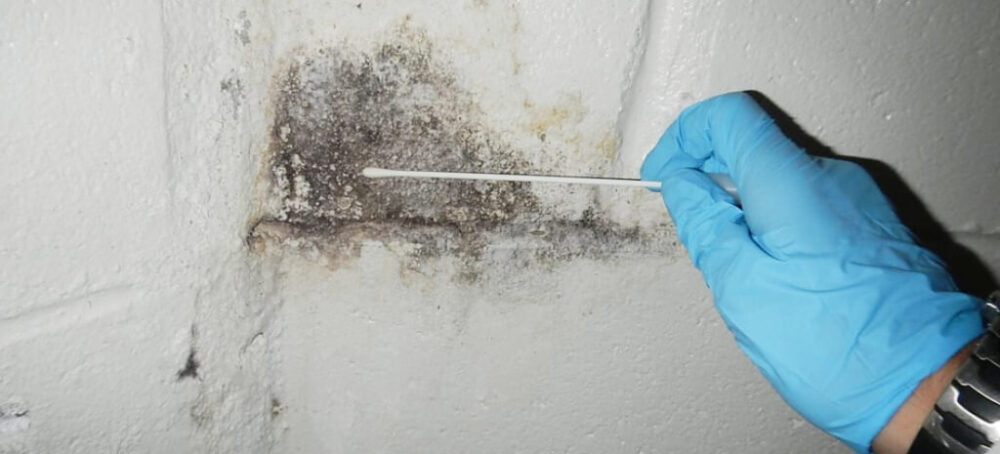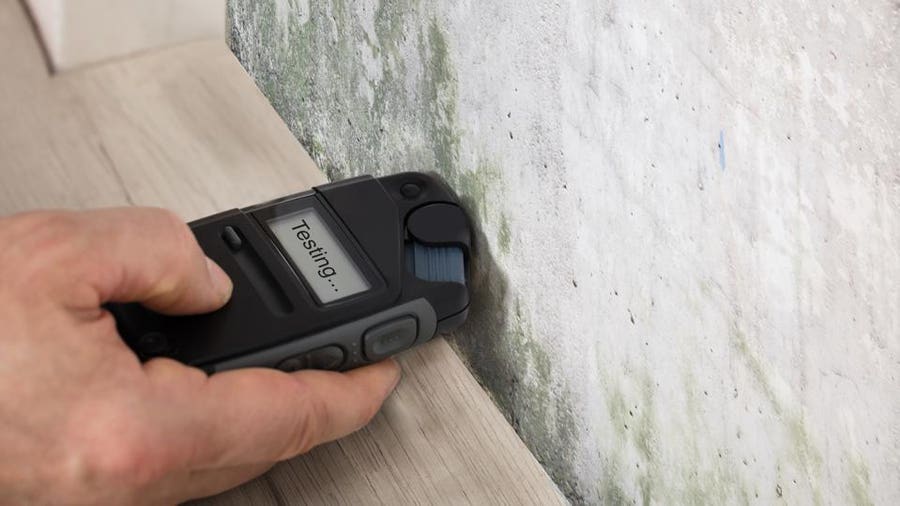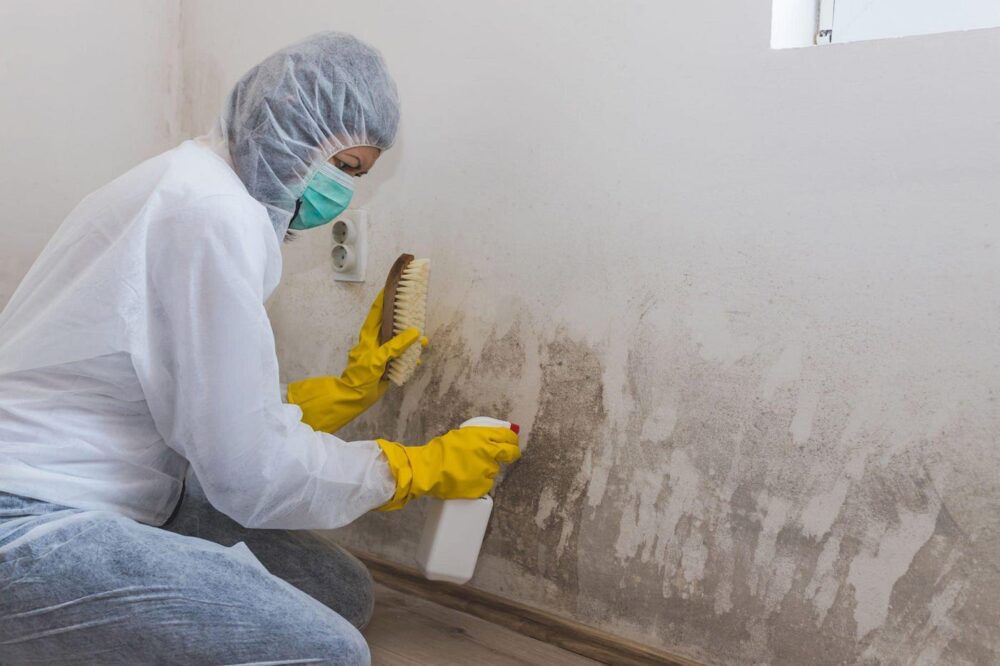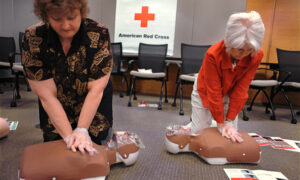Mold inspection is essential for maintaining healthy indoor settings. Mold can cause some health problems and jeopardize a building’s structural integrity. Therefore, it is crucial to have trained experts who can evaluate and handle mold-related issues. This outline is intended to give interesting directions on the crucial stages and requirements for people hoping to become registered mold inspectors.
Planning to attain the required mold inspector certification may help make everyone’s homes and workplaces healthier and more secure. To maintain healthy interior settings, mold inspection is essential. Excessive moisture, inadequate ventilation, or flooding can all contribute to mold growth, which can cause allergic reactions, respiratory troubles, and other health problems.
Examination Of Mold: An Understanding

Source: testmyhome.com
An essential step in recognizing and assessing the presence of mold in indoor environments is mold inspection. By identifying and resolving mold-related problems, mold inspectors play an important part in preserving healthy environments. Examine the definition and responsibilities of a mold inspector, the knowledge and abilities necessary for a successful inspection, and the ethical and legal issues that should be considered.
A Mold Inspector’s Definition And Function:
A mildew inspector is a skilled expert who focuses on spotting and assessing mildew growth in homes, businesses, and commercial spaces. Their main responsibility is to carry out in-depth examinations while utilizing their knowledge to gauge the severity of the mold infestation and identify potential reasons. Mold assessors are crucial in helping people make mold remediation and prevention decisions by giving them accurate and reliable data.
Competencies and Knowledge Necessary for Inspection: inspectors must possess a thorough understanding of biology, moisture control, building design, and the quality of the indoor environment. Inspectors must also have good investigation abilities to find hidden sources of mold and gauge the severity of infestations. Successful interpersonal skills are also crucial since they must explain their results to clients and make recommendations for correction and prevention.
Legally And Ethical Issues In Mold Inspection:
To protect clients’ health and safety while upholding standards set by the industry, mildew inspection incorporates legal and ethical issues. The laws that govern mildew assessment and remediation at all three levels should be known to mildew inspectors. They must carry out audits per these laws, adhere to established procedures, and protect customer privacy. Moral considerations include:
- Providing objective judgments.
- Avoiding clashes of passion.
- Exposing any potential limits in their knowledge or tools.
A thorough knowledge of mildew dynamics, excellent investigation abilities, and a dedication to upholding moral and ethical norms are necessary for a mold examination. Mildew inspectors are essential for preserving interior settings and assisting people in making judgments about mold-related problems. Experts can improve individuals’ well-being and create happier environments by having the information and skills required for mildew assessment.
Academic Requirements

Source: forbes.com
Some particular educational prerequisites to meet before beginning a career as a mildew inspector. Look at the fundamental processes, which include earning a secondary school certificate or a comparable one, going for specialized education and training programs, and taking ongoing classes for professional growth.
1. High School Diploma Or Comparable: A mold inspector often starts their education by earning a diploma from high school or a comparable credential. The academic information and abilities required to seek additional education and training in the subject of mold inspection are provided by this foundation. It creates a strong foundation for a fruitful career in this specialized field.
2. Pursuing Relevant Training And Learning Programmes: Potential mildew inspectors might register in appropriate training and education programs after graduating high school. These courses concentrate on building sciences, air quality in buildings, managing moisture, as well as related topics such as mildew inspection. Organizations that offer certification programs or specialized training can equip people with the comprehensive information and real-world skills required for an efficient mold inspection.
Full programs covering mold detection, sample methods, report writing, and mildew treatment guidelines are often offered online, at vocational schools, and community colleges. For students to get an accurate education, it’s critical to pick recognized programs that adhere to company norms and offer practical experience.
3. Continuing Learning For Individual Development: As new methods, laws, and studies are developed over time, the field of mold inspection is always changing. mildew inspections should pursue continuing education to expand their knowledge and stay current with industry developments. This may entail attending gatherings, seminars, meetings, and workshops on topics like indoor quality of air, mold evaluation, and other pertinent topics.
Professional groups and organizations frequently provide chances for ongoing learning, allowing mold inspectors to broaden their expertise, connect with colleagues in the field, and keep up with the most recent advancements. Mildew testers can offer their clients the best quality of treatment and retain their technical competency through their working lives by constantly pursuing continuous education.
Workers can receive the information and skills required to succeed in inspections by completing their educational requirements, which include earning a high school certificate or identical, following pertinent education and training programmes, and participating in continuing education. The dedication to continuing education guarantees that inspectors are current on industry best practices, cutting-edge innovations, and altering legal requirements.
Education That Is Ongoing And Career Advancement

Source: blackperspective.com
Maintaining a competitive edge in the dynamic world of mildew inspection requires ongoing professional growth and education. Examine the interesting procedures involved, such as keeping abreast of research and breakthroughs in the field, taking part in regular training sessions and seminars, and seeking advanced degrees for specialization.
- Maintaining Up-To-Date With Research And Industry Advances: Maintaining up-to-date knowledge of market developments and the most recent research is essential to succeeding as a mildew inspector. This entails actively searching and maintaining connections with trade magazines, journals, and websites. Mildew inspectors may ensure they have the most up-to-date information and expertise by monitoring new trends, technological advancements, and scientific research. They can give their clients the most accurate evaluations and recommendations by staying current.
- Participate In Ongoing Learning And Seminars: Ongoing training and seminars give mildew inspectors invaluable chances to hone their abilities and broaden their knowledge. Topics, including new inspection methodology, improvements in sampling methods, and revisions to rules and standards are frequently covered in these sessions. Mildew inspectors can learn via real-world case studies, network with industry professionals, and improve their ability to resolve issues by participating in such education programs. Workshops also offer practical experience that strengthens theoretical understanding and promotes growth as a professional.
- Acquiring Further Certificates For Specialization: As mildew inspectors gain understanding and expertise, specializing through advanced certificates can help them advance professionally. These credentials show a thorough knowledge and expertise in particular facets of mildew inspection, such as indoor air quality, mildew treatment procedures, or moisture management techniques. Mildew inspectors can establish themselves as leaders in the field and broaden the scope and the services they offer by earning additional certifications.
Professional societies and organizations frequently provide mildew inspectors with specialized training programs and career advancement opportunities. These more advanced certificates prove a mildew inspector’s commitment to continuing education and competence in specialized subject areas.
Mildew inspectors must always learn and advance their careers to stay competitive. Aside from ensuring excellent products and services, keeping up with industry innovations, taking part in continuous educational opportunities, and obtaining additional certifications all promote professional and personal growth. Mildew inspectors can keep a competitive advantage, establish a reputation as dependable experts, and offer their clients the best solution by actively participating in these chances.
Conclusion
Completing necessary actions and achieving certain qualifications are needed to become a certified mold inspector. Acquiring a high school certificate or its equivalent, participating in pertinent training programs, and continuing your education for personal development are requirements for this interesting career path. Regular learning will be necessary for professional development and delivering great client service as mold inspection develops. People may obtain an understandable path to achieving their objective of becoming certified mildew inspectors by summarizing the crucial phases.


















